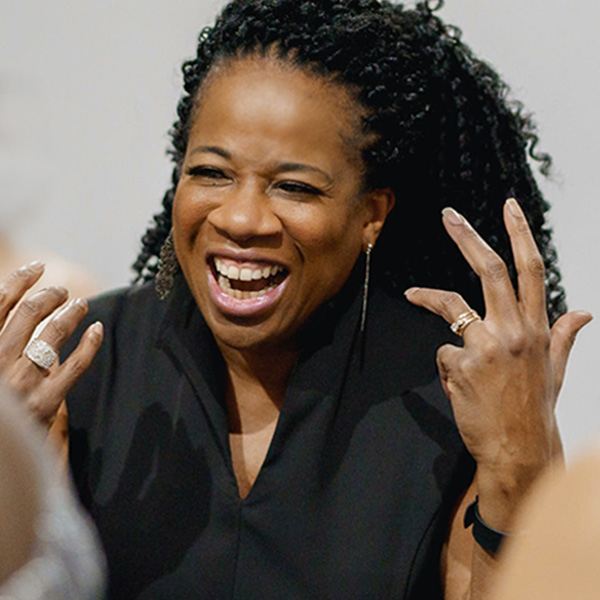Historical fiction didn’t always have a great reputation. As Alexander Manshel notes in his new book Writing Backwards: Historical Fiction and the Reshaping of the American Canon, “the genre that Henry James famously ‘condemned’ for its ‘fatal cheapness’ was for decades associated … with bodice-ripping historical romances.”
Things have changed considerably in recent decades, and you’ve probably noticed it yourself if you pay attention to the novels that are in the running for the top literary prizes each year. In his book, Manshel, an assistant professor of English at McGill, writes that works of historical fiction account for “nearly three-quarters of all novels [shortlisted for major awards] between 2000 and 2019 … reaching a whopping 80 percent in the first decade of the twenty-first century alone.”
The genre is also dominating classroom discussions. Manshel writes that historical fiction “makes up 70 per cent of the post-1945 novels that are most taught in American universities.”
Why and how has historical fiction become so central to contemporary literature?
Writing Backwards is a wide-ranging, multifarious work that makes sense of a complicated confluence of cultural, commercial, academic, and political factors – things that, when experienced in real time, might not have been so evident, but whose results now surround us.

“Literary fiction and historical fiction have become synonymous,” says Manshel. “For many of the writers I’m talking about in the book, writing historical fiction is not what makes them ‘genre’ writers, but rather what makes their work ‘literary’ in the first place. Along with this has come, among other things, a tendency to value historical fiction over novels of contemporary life, and a weakening of the white monopoly on critical esteem.”
This is, on balance, essentially a good thing, presumably?
“On one hand, yes, it’s an enormously positive phenomenon that writers of colour are being recognized and rewarded more than ever,” says Manshel. “But on the other hand, if this great diversity of writers is not being recognized for an equally great diversity of literary forms – and it’s overwhelmingly the case that historical novels are getting the awards and the canonization – it can become a means of containment. I argue that this is not a conscious restriction or containment, but the opposite: a conscious encouragement and incentivizing of writing about the past.”
And that means that there is less space for other forms of fiction.
“The problem is that [this focus on the past] has meant a de-emphasis on contemporary narratives and issues, such as mass incarceration. There’s a sense that in order to write about these things in fiction, it has to be done symbolically, through the lens of historical narratives.”
Historical fiction’s multilayered supporting ecosystem, as Manshel points out, takes on its own momentum, rippling out to every corner of the book world.
“Part of the way publishers acquire books is they have agents and authors who supply comparative titles for comps. If you can point to five other titles by authors of similar community that have been successful, that have been nominated, shortlisted or have won major prizes – and that have been taken up by schools, because that is one of the biggest markets for literary fiction – then publishers are more likely to put money behind a book and promote it.”
While publishers might be encouraging writers to embrace historical fiction, authors have other motivations. In an interview earlier this year on the podcast On the Media, Manshel observed, “If you are a literary novelist, you are interested in having your work not only be read right now but having it last, having it survive to be read in the future. When writers set their work in the historical past, they’re also in a way claiming a timelessness.”
Certain cases can be pinpointed as seminal in the timeline Manshel traces. On mention in our interview of William Styron’s 1968 novel of slavery The Confessions of Nat Turner – little-remembered today, but a prestige item and bestseller when first published – Manshel says, “Some scholars credit that book with launching the boom in the genre of the contemporary narrative of slavery. Out of a response to Styron’s success, a number of Black writers essentially asked, ‘Why should he get all this attention when this is the history that we are descended from?’”
That generation, of course, included Toni Morrison. Beloved, a work whose vast influence and ongoing popularity renders it practically sui generis, gets its full due in Writing Backwards.
Also looming large in Manshel’s book is Colson Whitehead, the Pulitzer and National Book Award-winning author of The Underground Railroad (set in the 19th century) and The Nickel Boys (partially set in the 1960s). Manshel makes the case that Whitehead, through his various genre and mixed-genre exercises, is building an oeuvre that, taken as a whole, constitutes a non-linear American history from the mid-19th century through to the present and into the future. Mention of him in our chat prompts Manshel to recount a highlight of his recent teaching experience.
“Last year I taught a single-author course that included all of Whitehead’s novels,” Manshel explains. “I’d been sharing the course on social media, and one day Whitehead saw it and wrote to me, saying how cool it was that there was this course dedicated to his work. So, he was invited to Zoom in to our classroom, and he did. Hosting him was a really special thing to be able to do. It was a fantastic experience for the students, who’d been immersed in his books for weeks, to talk to him.”
A sub-theme running though Writing Backwards is the idea that the cultural landscape never stops shifting. The worlds of the popular and the academic are far less siloed than they used to be, for example. It’s a development Manshel applauds.
“I can write for The Atlantic and the Los Angeles Review of Books and people having nothing to do with the academy will read it. That can only be a good thing.”
Manshel has already begun work on his next book project. Still in the early stages, it looks at the history, culture, and impact of high school English teaching in the United States.
“It’s an important subject because high school is the place where more people read more literary fiction, and read it more critically, than anywhere else: more than in university, more than in book clubs. To put it in perspective, in 2021 there were around 40,000 English majors in the United States. That’s a huge number. But in that same year there were roughly 400,000 high school English students just in their senior year, just in Texas,” says Manshel.
“So, we’re looking at many, many young people who, out of passion or enthusiasm or just because they’re required to, sit down every week and read literary fiction, poetry, drama – and talk about it. If you’re going to become a lifelong reader, that’s probably where it happens. And if you never read again, that will have been the last place you did.”


